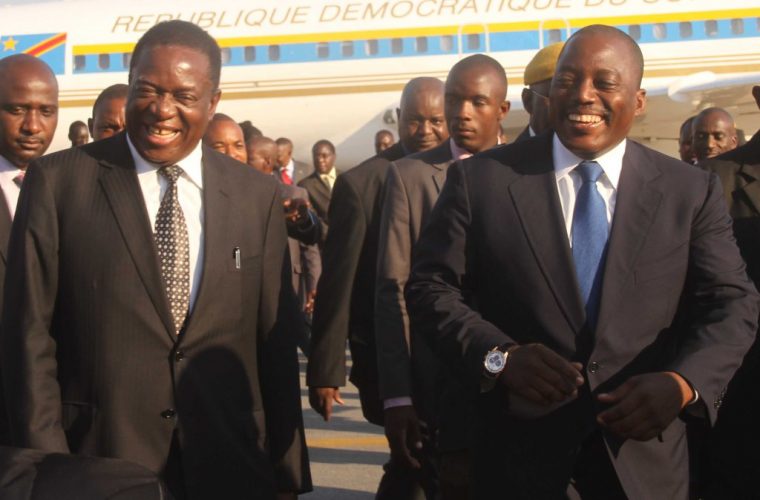President Emmerson Mnangagwa has left for the Democratic Republic of Congo on mission to brief the Congolese leader Joseph Kabila on the latest developments in Zimbabwe.
Mnangagwa has been briefing Southern African heads of state on his rise to power through military intervention in November last year.
He has already been to South Africa, Angola, Mozambique, Namibia and Botswana on a similar mission but his trip to DRC is unique because Kabila is under siege to step down.
Botswana yesterday called on Kabila to step down saying leaders like Kabila hold on to power because “such leaders are driven by self-interest instead of those of the people they govern”.
Kabila became leader of the DRC in January 2001 taking over from his father who was assassinated 10 days before he took office.
His rise to power was largely sponsored by Zimbabwe which was backing his father.
With the new dispensation in Southern Africa which has seen Jose Eduardo dos Santos, Jacob Zuma and Robert Mugabe go, eyes will be focusing on whether Mnangagwa can persuade Kabila to go quietly instead of waiting to be forced out.
Mnangagwa and the Zimbabwe military had close ties to Kabila and the DRC through what they called Operation Sovereign Legitimacy (Osleg).
Foreign Minister Sibusiso Moyo is reported to have been one of the key players in the DRC operation.
Mnangagwa, who is marketing himself to the international community as a reformer who can get Zimbabwe back on its feet and to the international community, could score a major diplomatic coup if he persuades Kabila to step down.
(577 VIEWS)







0 Comments